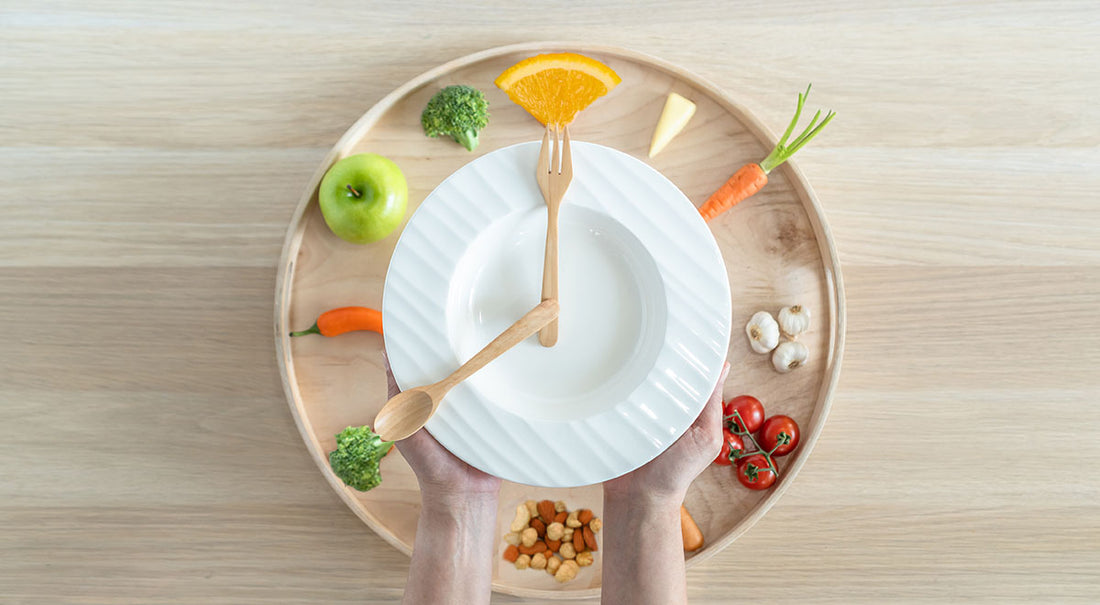For as long as cultures have existed, the act of fasting has been adopted for various reasons, so is it any wonder the term 'Intermittent Fasting' is popping up everywhere nowadays?
Once we came to know the mind-blowing benefits of this new 'craze,' we started to change our thought process, and instead of thinking of this as another useless trend to follow, we began to see what fantastic benefits this fasting method holds.
If you have a keen interest in learning more about Intermittent Fasting for vegans, then you have come to the right place because now more than ever is the perfect time to jump on the bandwagon of this ancient technique.
Intermittent Fasting has many exceptional benefits, more than you might have thought.
Still, before we jump the gun and skip straight to the topic of intermittent Fasting for vegans, let's first step back in a time to see how our ancestors made use of fasting in their daily lives.

The History of Fasting
The fasting technique cannot be associated just with one culture or even one region of the world; in fact, there is a reason that many cultural communities who were miles apart all devoted themselves to a common technique, and we will tell you all about that here.
Fasting can be associated with various social events such as religious holidays, i.e., Ramadan or Lent, or non-violent political protests, as well as to promote weight loss, get a sense of mental clarity, or even detoxify the body.
No matter the initial reasons for fasting, the body sees excellent advantages from this prolonged abstaining from food.
Today, fasting is a common technique that we have learned from ancient figures.
Fasting can be significantly linked to Buddha and Ancient Egypt; however, you might be surprised to learn that fasting began in Ancient Greece when the Greeks would undertake a water fast (which many still do today) to gain physical and spiritual benefits.
According to this source, the Ancient Greeks used the fasting method as a self-healing technique.
Hippocrates famously said, 'Instead of using the medicine, rather, fast a day' - a quote many people still heavily rely on, and with the evidence to show, why wouldn't they let the body heal itself?
Here, we will talk about Intermittent Fasting for vegans, which is related to traditional fasting but relies on a few distinct steps, all of which are suitable if you are following a vegan diet or plan to follow a vegan diet when undertaking this fasting method.
The overall idea of fasting is the same, and the body will reap the same benefits as could be witnessed in ancient cultures, yet today, this technique is a safer, more viable option for anyone wanting to try it.
So, if we have grabbed your attention, you probably want to know more about Intermittent Fasting for vegans and how to get started safely.
So, let's take a look at what Intermittent Fasting is below.
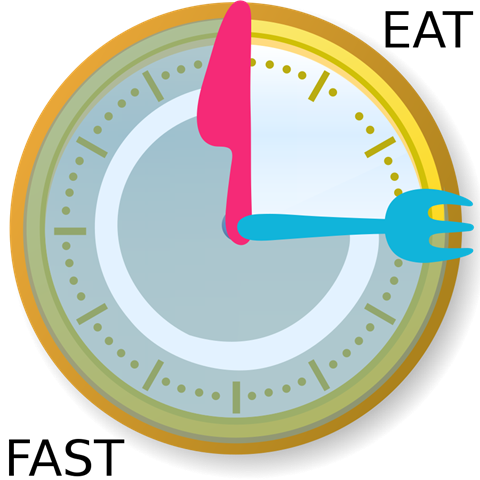
What is Intermittent Fasting?
Perhaps you know someone who has tried out intermittent Fasting or continues it regularly, prompting you to be curious to look a little bit deeper into the concept, or perhaps you have never heard of it before and are open to learning about this beneficial and easy to approach fasting plan.
Whatever your reasons for being here, we are hopeful that you will get what you came here for, and in turn, it will lead you to take care of your body and be more conscious about what it needs.
So, let us explain what intermittent Fasting involves.
While many people naturally fast during the night (unless we are privy to the odd midnight snack), Intermittent Fasting takes it a step further, adding a couple of extra hours to what you have already endured overnight.
For some, these extra few hours can be the most challenging part of getting started, especially if you decide to skip breakfast which may be your favorite meal of the day, or dinner, which could also be your preferred meal.
Intermittent Fasting for vegans is a method that can be done simply, with routine and the proper fasting cycle.
However, it is worth noting that not every time cycle will suit everyone – something we will delve into a little further on with some clarity.
This eating pattern involves breaking the day up into eating and fasting periods to increase your body's metabolic rate.
The cycle generally falls into the 16:8 category, where you fast for 16 hours and eat for 8 hours.
Do not worry; fasting for 16 hours may seem daunting at first, but many people have found it to be much easier than imagined.
One main thing to know about Intermittent Fasting for vegans is that this technique does not tell you WHAT to eat but rather WHEN to eat – which is the key.
While this is a general rule of thumb, it is also important to note that you should still eat well-balanced meals, get plenty of regular exercise and stay hydrated when undertaking Intermittent Fasting.
Even if it says you can eat what you want for 8 hours, you should be conscious only to put healthy foods into your body and eat snacks in moderation.
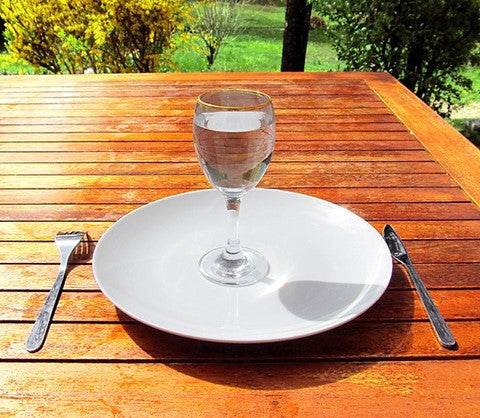
The Benefits of Intermittent Fasting
So, now you know what Intermittent Fasting is; let's get to the benefits and why anyone would willingly give up food for 16 hours – believe us, these reasons will convince you.
- It can help you maintain a healthy body weight, but at the same time, it should not be undertaken with the sole focus of shedding weight.
- Metabolic switching enables your body to burn fat after it has used the liver's glucose storage, which we don't allow time for in a standard diet.
- It can stabilize blood sugar levels.
- Decreases blood pressure and cholesterol levels.
- It increases stress resistance and suppresses inflammation in the body (the root cause of many diseases).
- It is a diet that does not cut out any specific food groups, making it a sustainable and safe one to take on, and many foods can be eaten in moderation.
Things to know
- Don't expect immediate results; this routine takes time for you and your body to adapt.
- Choose the proper fasting cycle for you to avoid missing your favorite meals and to make it more sustainable as a diet.
- Eating whatever you want is not the concept of Intermittent Fasting for vegans; instead, eat as healthily as possible, loading up on nutrient-rich vegan foods.
- Stay hydrated while fasting with water, plain coffee, and herbal teas, especially to combat hunger during this time.
- This diet is not recommended for young children, the elderly, or anyone with low body weight or a history of eating disorders.
- Trials are being studied to see if intermittent Fasting affects cancer treatment since these cells need glucose to feed off.
Fasting Cycles and Options
16:8
The 16:8 Intermittent fasting for vegans is probably the most common option, and there are a few different fasting cycles to choose from in this category.
The main aim is to make sure you fast for 16 hours and eat healthily during the 8 hours, so this can mean cutting out breakfast or dinner – or neither if you cannot live without three meals a day.
Some options are:
- 9 am-5 pm (early breakfast, regular lunch, skip dinner)
- 10 am-6 pm (regular breakfast, regular lunch, early dinner)
- 11 am-7 pm (late breakfast, regular lunch, regular dinner)
- 12 pm-8 pm (skip breakfast, regular lunch, regular dinner)
5:2
Another option for intermittent Fasting for vegans is the 5:2 approach, which involves eating regular meals five days per week and consuming just one meal on the remaining two days of your choice, of between 500-600 calories.
Eat Stop Eat
This approach involves a 24-hour fast from dinner until dinner the following day, one or two days out of the week.
In-between Fasting
Here are some of the best drinks to consume during Intermittent Fasting for vegans to keep you full and hydrated.
- Water
- Flavored water
- Seltzer
- Black coffee (no vegan milk or sweeteners)
- Diluted apple cider vinegar
- Herbal teas or black tea

Intermittent Fasting for Vegans
Intermittent Fasting for vegans has become just as much of a trend as Intermittent Fasting for other diets.
Still, unlike most trends and phases, this 'diet' is well known for being sustainable and safe and has many benefits compared to other diet ideas you may have heard of.
Additionally, Intermittent Fasting is not necessarily known as a diet but rather more of a lifestyle and something that many people follow on an ongoing basis or regularly.
However, when it comes to intermittent Fasting for vegans, it is imperative to ensure that you are eating a well-balanced vegan diet and avoiding nutrient deficiencies by eating varied meals and taking supplements when needed.
It is not enough to purely 'fast,' but rather eat as you usually would, with plenty of fruit, vegetables, nuts, seeds, whole grains, and healthy carbohydrates during meal times.
Intermittent Fasting for vegans differs in that your meals will be purely plant-based, and you will rely on eating a rainbow of foods, which will keep you nourished, allowing you to be even more conscious about what you put in your body.
Vegans who do not fully nourish their bodies with these kinds of food may feel tiredness, lethargy, and a feeling that their body is missing something.
When considering fasting, this needs to be targeted head-on at the beginning.
You can do this by choosing the fasting approach and cycle that best suits your lifestyle and then creating a diet plan to ensure you are not depriving yourself of nutrients.
Look at this graph below to get an idea of what foods are needed when leading a vegan diet and which you should include on an intermittent fasting diet plan.
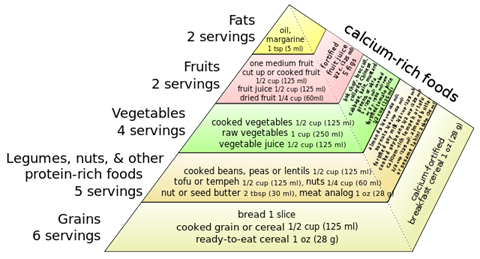
How to choose the best fasting cycle
Choosing the best fasting option and cycle is the most critical part of Intermittent Fasting for vegans; as mentioned before, it is not a one size fits all approach.
While many of us know certain people who just grab a morning coffee and can get on with their day until lunchtime hits, we also know those people who cannot function without having a hearty morning breakfast or even a late-night dinner, which shows us just how important this decision can be.
Intermittent Fasting for vegans is a sustainable and safe way to give our body's metabolism the kick-start it needs.
Still, if we choose a fasting cycle that doesn't suit us, it won't last very long, and we will quickly find ourselves reaching for the next vegan snack from the cupboard.
If you know you are someone who can happily eat just one meal a day for two out of seven days, then the 5:2 option could be ideal for you; however, if you want to have as regular an eating plan as possible, then the 16:8 could be perfect, and this method turns out to be the most practiced in modern times.
Lastly, if you find it relatively easy to fast in the evenings, the 'Eat Stop Eat' method could be the way to go, so it is worth deciding which intermittent fasting method will be more long-lasting for your way of life.
The best way to choose a fasting option is to look at the lifestyle we already have and choose one that fits accordingly.
So, if you already know that the 16:8 method is for you, here is what you need to know.
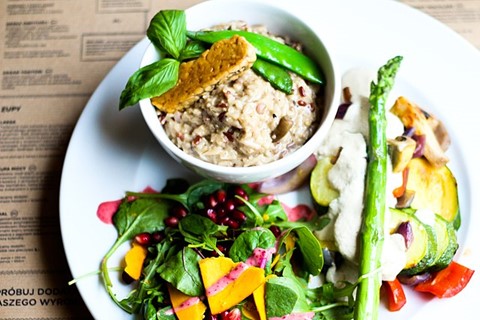
The most popular Intermittent Fasting for vegans method
(16:8)
Both intermittent Fasting and veganism have a few things in common, but one of the main things is that both have increased in popularity in recent years, which goes to show that both go hand in hand.
So, if you are a vegan keen to try it out and believe that the 16:8 fasting method could be the right one for you, then there are a few key things to know before you get started.
With the 16:8 intermittent Fasting for vegans method, there are no restrictions regarding how much you eat during the 8-hour eating window. Still, it is recommended to eat as healthily as possible.
During these eight hours, it is advisable to eat foods that will keep you fuller for longer, and here are some of the best options:
- Nuts and seeds
- Tofu, tempeh, beans, and lentils
- Potatoes, brown rice, brown pasta
Intermittent Fasting for vegans can be more challenging, considering you need to make sure you are eating a selection of foods that give you the nutrition you need.
Here are some to add to your shopping list:
- Flax seeds, hemp seeds, chia seeds – For Omega 3s
- Brazil nuts – For selenium
- Fortified plant milk/yogurt - For calcium
- 2-3 servings of leafy green vegetables – For a range of vitamins and minerals
- 2-3 servings of fruit – As above
- B12 supplements
Useful Information
There are some things to know when trying this intermittent fasting method, especially if you are new to a vegan diet.
Vegans tend to be lower in B12, iodine, iron, calcium, zinc, selenium, and long-chain omega-3s, and trying to fit all of these foods into eight hours can be tricky planning a long way.
It also wouldn't hurt to brush up on your nutritional knowledge to be sure you are doing right for your body and to allow yourself to get the benefits of both a vegan diet and intermittent Fasting.
The 16:8 intermittent Fasting for vegans method is one of the most popular, but it is not suited to everyone, so careful planning is required before undertaking this.
While there are a host of exceptional benefits for the body, as well as reducing your risk of disease, there is an element of care that needs to be taken, primarily as a vegan, to ensure you are fasting as safely as possible, so always do research and listen to your body.
Final Thoughts
Intermittent Fasting for vegans is one of the best ways to allow your body to heal from within while providing a wide range of nutritious foods to your body's cells, which have a significant impact overall.
It is no wonder that more and more people are opting to follow this fasting method, but if you are vegan, it takes some extra planning and care to ensure your body is well taken care of.
If you take care of your body, your body will take care of you.
One thing is for sure, if you listen to your body, take it slow and be mindful of what your body is trying to tell you, you will experience a host of benefits such as lower cholesterol, a balanced weight, lower risk of cancer, more energy, and better digestion.
Both low-fat vegan diets and Intermittent Fasting have the power to keep your body healthy from the inside out, and when both are practiced safely and consciously, you can only expect great things to happen.
So, what are you waiting for?

